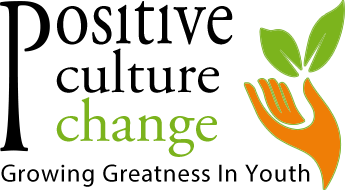The Attuned School Approach
“Learning, in general, happens best in a warm, supportive atmosphere, in which there exists a feeling of safety, of being supported and cared about, of closeness and connection. In such a space, children’s brains more readily reach the state of optimal cognitive efficiency—and about caring of others.” (Goleman & Senge, 2014)
Our challenge in schools is to create optimum learning environments for students while the forces of stress, trauma, the pandemic, racial inequities, challenging economic conditions and mental health issues like anxiety and depression create obstacles to achieving this optimal environment.
While under significant stress students do not learn, teachers are not effective in teaching and parents are not at their best. Positive Culture Change brings the Attuned School Approach (ASA) to help the entire school community be their best so they can deliver a powerful learning environment to the students.
SCHOOL BASED PROFESSIONAL DEVELOPMENT OPPORTUNITIES
The following topics are delivered in durations from 1-5 hours. They are offered live or virtually. Most come with handouts and participant workbooks. They are presented in engaging, interactive ways and are always filled with practical strategies
I PROFESSIONAL DEVELOPMENT FOR EDUCATORS
The first step in a school’s journey to become an attuned school is to become aware of the powerful impact of chronic stress on our brains and our bodies. This training includes learning about the A.C.E. study, the impact on our ability to manage emotions, think critically, and accurately tune in to and meet the needs of another person.
Students and teachers are continually experiencing challenges and stressors throughout the day that affect their feelings and behaviors. This training, based on the work of Leah M. Kuyper, describes four ways of understanding the state of the mind/body. The Blue Zone (tired, unfocused and lethargic); The Green Zone (alert, focused and engaged); The Yellow Zone (anxious, distracted, and edgy); The Red Zone (highly distressed, angry, and out of control). This training will explore these zones and will teach practical tools for optimizing or modifying the zone state to better suit the situation you are facing.
Humans make better decisions and have better results when they are in calm well- regulated emotional states. We are all exposed to moments of high stress and sometimes extended periods of high stress. In high stress states, we are ready to fight flight or freeze. We are not as prepared to use critical thinking skills when we are in these states of high stress. This training will focus on becoming aware of the detrimental effects of stress on mood and decision-making and will create an individualized Reset Strategy Plan (RSP) to effectively manage stress and return to a better mind/body state.

The goal of this training is to add to an educator/parent’s toolbox of skills designed to stay out of power struggles, minimize escalation of defiance/opposition, and promote cooperation/movement towards better-regulated mind/body states.

Stress has become ever-present in our world. This training will focus on defining burnout, the importance of self-care, and provide a variety of strategies to effectively reduce stress. Utilizing a tool called the “Energy Exchange Pie Chart”, individuals will identify the energizing and draining components of one’s life and start to plan to grow elements that energize life and decrease those that are draining.
The Nurtured Heart Approach® is a set of trauma-attuned principles and strategies designed to bring out the best in our staff and our students. Stand 1 teaches us to do our best to stop rewarding undesired behaviors with our attention and connection. Stand 2 teaches us various ways to grow the desired behaviors and qualities in others and ourselves. Stand 3 teaches us the importance of clear rules and limits and how to deliver them without energy. Teachers know the qualities and behaviors that make for a successful student (Flowers) and which do not (Weeds). This approach will show you how to grow the flowers and starve the weeds to grow positive qualities in your students, staff and yourself.

This training supports the development of restorative circles in the school/classroom and home settings through role-playing. Restorative Practices are a framework for building community and for responding to a norm violation through authentic dialogue, moving towards mutual understanding, and making things right. Restorative perspectives are a significant shift away from punishment-oriented, zero-tolerance practices and represent a movement towards inclusionary and collaborative efforts towards restoration.

The voice we listen to the most is the one that talks to us in our head–the inner voice. Sometimes the inner voice turns its attention from the world around us to ourselves. It can be kind and compassionate and sometimes critical, negative and mean. This critical inner voice has a significant impact on our mood, our relationships, and our ability to be resilient. This training will help you to understand the difference between your inner voice and the “real” you, will identify the detriments of a fixed mindset, and will outline the benefits of a growth mindset. The Nurtured Heart Approach is used as a methodology for transforming your critical inner voice to a more growth mindset orientation.
Adolescence is a time of identity formation, rebellion, and conflict with adults and authority figures. Sometimes just getting a friendly conversation started can be a challenge. This training will provide an understanding of why it makes sense for adolescents to behave this way. It also describes the three conditions that must be created to engage the adolescent in a meaningful way. Ten tips for successful engagement and techniques for dealing with the five most common roadblocks to relationship-building are also shared. Participants will engage in role-plays and experiential learning around the seven most common ways that we inadvertently shut off communication with an adolescent.

This training focuses on using and practicing the five intentions of: staying in the present moment, focusing on what you can control, choosing to energize positive and empowering thoughts (feed the flowers starve the weeds), practicing self-care (replace self-criticism with self-compassion), and learning ways to reset yourself in order to grow a resilient mindset in yourself and others.

Mr. Picone will sit in on a portion of a class in session and then meet with the teacher to discuss strengths and challenges in using the components of the Attuned School Approach.

II SCHOOL ADMINISTRATION/LEADERSHIP
Moving a school’s culture toward the Attuned School Community involves changing practices and policies. In this training we will use components of the Kotter model that include- Building an Impact Steering committee, creating a sense of urgency, communicating the vision and initiatives, and generate and publicize short-term wins. The Guiding team will learn how to create an implementation plan that includes these steps.

Mr. Picone will meet with administrators and supervisors individually of together to reinforce learning in all of the components of the ASA.

Recruiting and retaining the best staff is crucial for success in any school but the stress of the work can negatively affect the morale and overall school culture, leading to poor work performance and high turnover. More than ever, all staff and especially formal and informal leaders need to focus on creating a positive and motivating school culture. Borrowing from the work of Stephen Covey, John Kotter, Howard Glasser and Marcus Buckingham, this training provides an overview of the five foundational intentions for formal and informal leaders that will contribute to positive and motivating work cultures for all staff in the school environment.

This training provides an overview of the key concepts in Motivational Interviewing based on the book Motivational Interviewing (MI) by Miller and Rollnick. MI is a way of being with others that constitutes a collaboration without pushing/directing or power struggles. The focus of the collaboration is to assist the person to resolve ambivalence towards change. Engagement (listening empathetically without judgement); Focusing (helping the person identify what they want different in their lives); Evoking (asking questions to help the person explore the landscape of their feelings and perceptions around the area of change and discover clarity around what’s important and grow their self-efficacy to achieve that goal; and Planning (making individualized plans to walk through the trip of change) are the four processes of MI.

III STUDENT AND PARENT “GROWING RESILIENCY SKILLS” CURRICULUM
Session 1: Using the Nurtured Heart Approach®, Keeping intentions to “grow the flowers in our life and starve the weeds” and to be “absolutely clear” about which is which, Using powerful recognition statements.
Session 2: The Bus to Bad Decisions: How to wave it on and regulate your emotions.
Session 3: Growing a growth mindset and transforming the negative narrator in your head into a more compassionate friend.

Session 1: Introduction to Nurtured Heart Approach® (NHA) Three Stands/Intentions of NHA: Growing the Flowers & Starving the Weeds. Absolute Clarity
Session 2: Understanding the effect of stress on our children and ourselves. Learning ways to better regulate our emotions and optimize our brains to enhance parent effectiveness and parent-child relationships
Session 3: Using NHA to build a Growth Mindset and build resiliency skills in our children.



